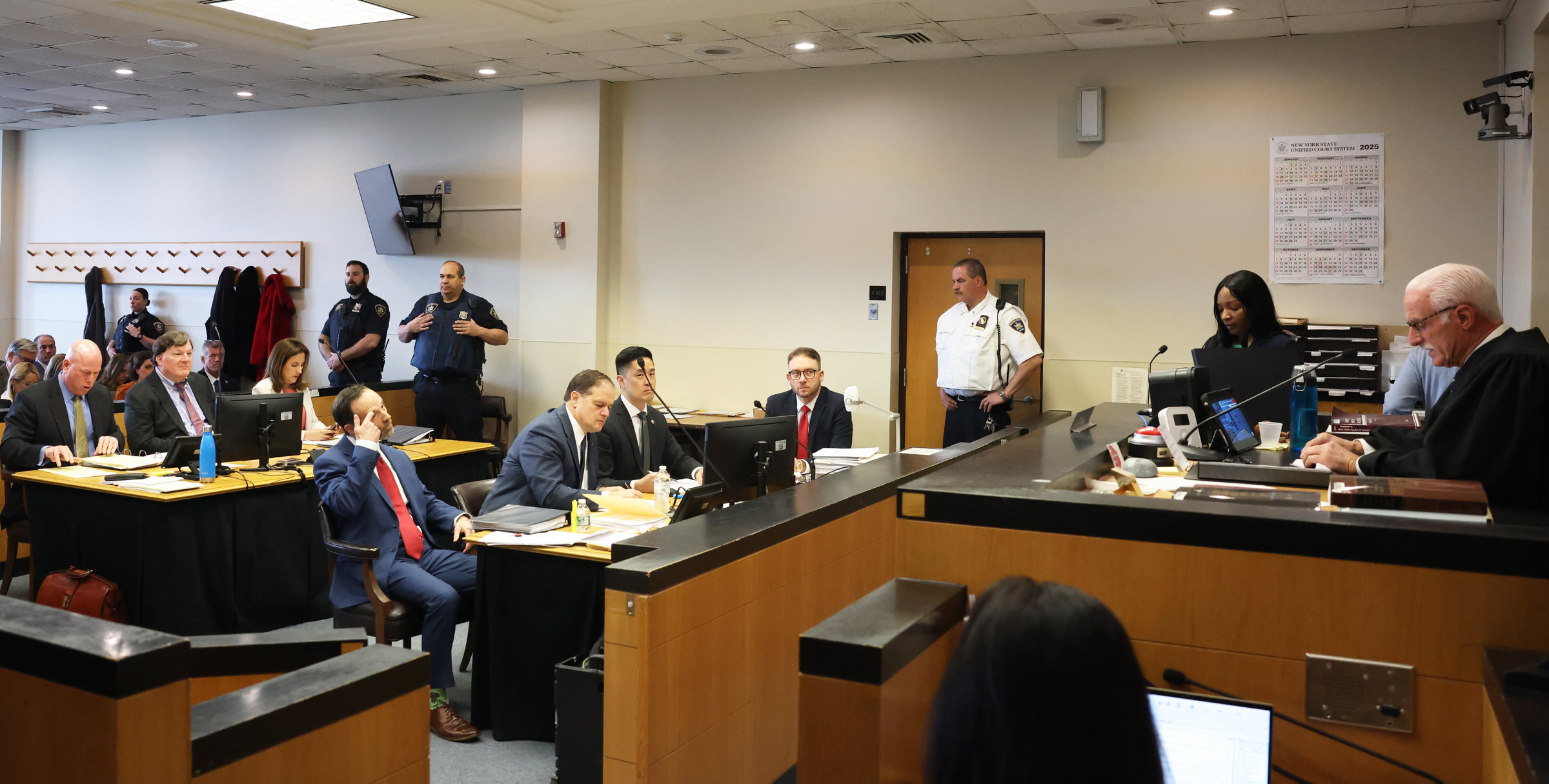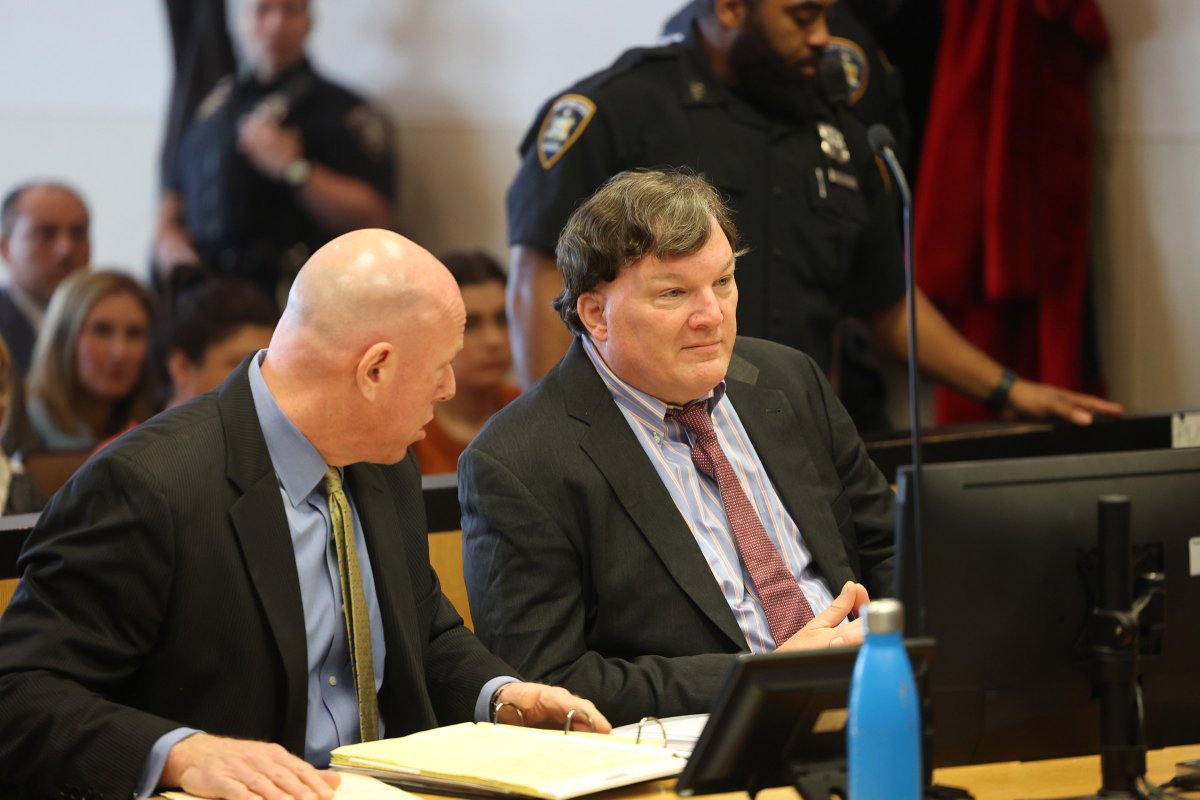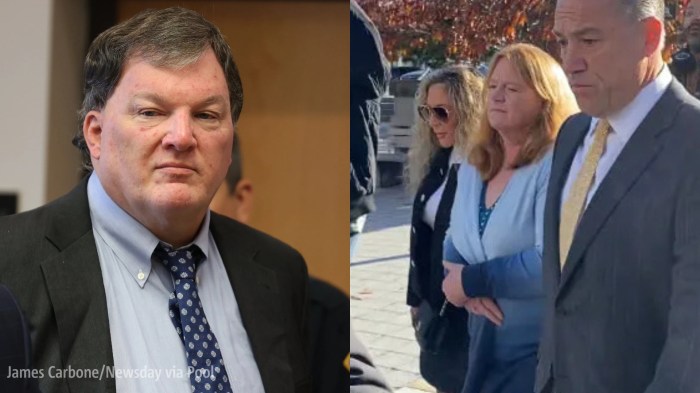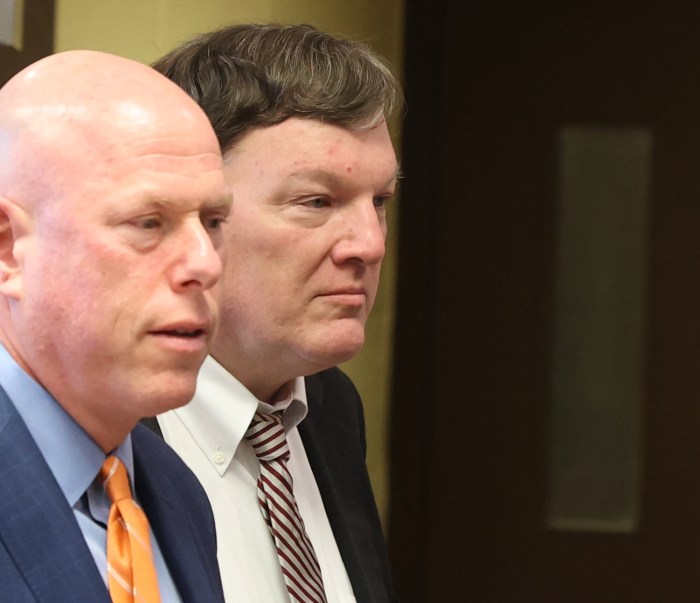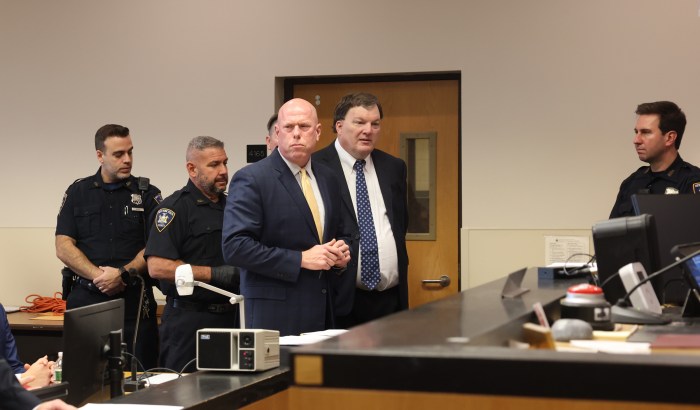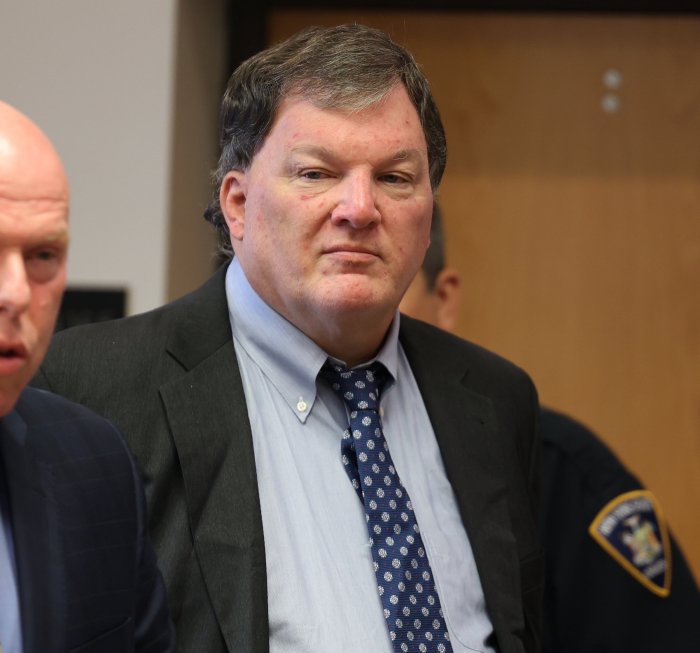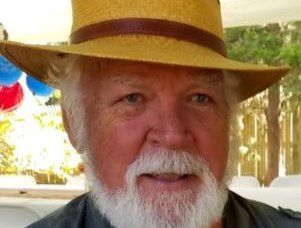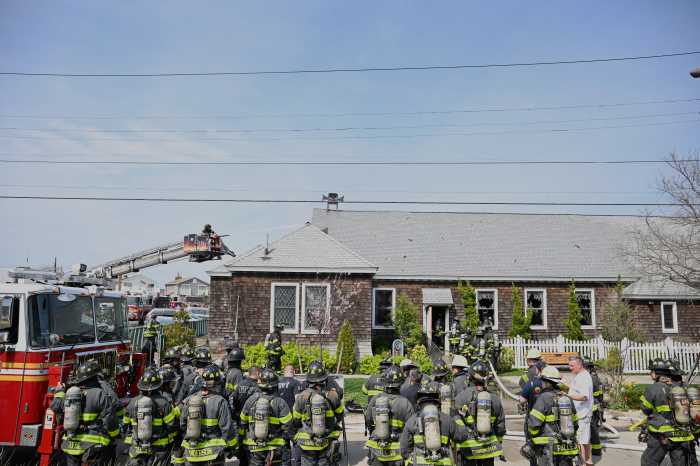The advanced DNA technology used in the Gilgo Beach serial killer case is like piecing together missing words in a damaged copy of Hamlet, an expert in population genetics testified on March 28 as defense attorneys tried to discredit her.
Kelley Davis, an associate professor of genome sciences at the University of Washington, made the William Shakespeare analogy when she took the stand as the first witness in a hearing to determine the admissibility of nuclear DNA testing in the case against suspected serial killer Rex Heuermann.
“If we assume the damaged book is Hamlet, it’s easy to see how we could have gotten our data,” Davis told the court. “We just had to copy each of these words and use the other words, and we know that we lost the other words.”
The judge approved a defense request for the hearing after Suffolk authorities outsourced DNA testing to the California-based Astrea Labs, which has not yet been used for any murder case in New York. It is accredited in Idaho, and Davis was recommended by Richard Green – Astrea’s co-founder – to be an expert witness in the case.
The DNA evidence was found in hairs on each victim, allegedly belonging to Heuermann, his estranged wife Asa Ellerup, and daughter Victoria Heuermann, but the hairs were degraded. Suffolk authorities obtained a buccal swab from Heuermann – as well as his family – in 2023 and were able to build a DNA profile.
Heuermann was linked to the murders of six of the seven women he is charged with – Jessica Taylor, Valerie Mack, Sandra Costilla, Maureen Brainard-Barnes, Megan Waterman, and Amber Lynn Costello – through nuclear DNA. For only one victim, Melissa Barthelemy, is there no DNA evidence.
Astrea Labs uses a computational tool called IBDGem, which Davis praised on the witness stand while discussing an article by Green that she had peer reviewed.

“This manuscript describes an elegant and powerful method for testing whether a hair sample from a crime scene likely matches a higher quality DNA sample taken,” Davis testified. “It’s embarrassing for our criminal justice system that a method like this wasn’t state of the art years ago.”
During his cross examination, Brown attempted to cast doubt on Davis’ status as an expert witness, clarifying her status as a population geneticist and not necessarily a forensic scientist. He questioned why she had been brought over from Washington – and paid $400 an hour by Suffolk County – as opposed to someone from New York with more of a specific expertise in DNA criminology.
“They asked her to [testify at a trial in] Idaho,” Brown told reporters after the hearing, noting that she was never called to the stand in that case. “She doesn’t know why she didn’t testify, and I don’t know why she didn’t testify, and now they bring her here to Suffolk County. It’s like a traveling circus here.”
Despite Brown’s challenges to the nuclear DNA testing, Heuermann is still linked to five victims – Taylor, Costilla, Mack, Waterman, and Costello – by mitochondrial DNA. Brown is not attempting to block those from court, as mitochondrial DNA is not as precise as nuclear.
“The mitochondrial DNA at best, is one in 10,000 so that means the likelihood that there’s an alternative person with the same DNA is one in 10,000,” Brown said. “To say it’s not convincing is an understatement.”
Mitochondrial DNA rules a certain percentage of the population out – in Heuermann’s case, over 99% – while nuclear DNA is able to pinpoint one specific individual.
Suffolk District Attorney Ray Tierney was in court, but did not cross examine Davis or speak to media. Also present in court were Asa Ellerup and Victoria Heuermann. Heuermann and Ellerup filed a divorce settlement agreement hours before the hearing.
“They have no comment,” Robert Macedonio, who represents Ellerup, said. “They’re the only two individuals in the courtroom whose DNA was found on the victims, so they want to hear this scientific process and how it played out.”
Ellerup and Victoria Heuermann are not suspected of any involvement in the murders and were proven to be off of Long Island at the time at least six victims were murdered.
Heuermann is due back in court April 2.
Related Story: Gilgo Beach Serial Killer Suspect Rex Heuermann Lived Near Nassau Police Academy
Related Story: Gilgo Beach Serial Killer Suspect Rex Heuermann an ‘Ogre’ Who Defies Supervillain Myth
Related Story: Heuermann Charged With Murders of Jessica Taylor and Sandra Costilla, Alleging New MO
For more Long Island Serial Killer coverage visit longislandpress.com/tag/long-island-serial-killer
